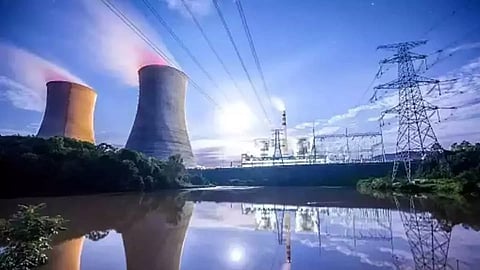

NEW DELHI: Coal and hydropower energy transitions in India are characterised by significant state-sanctioned violence, which can marginalise Indigenous and frontline communities, new research has found.
The study called for an investigation of 'violent transitions', referring to the ways in which the expansion of fossil fuel and low-carbon energy infrastructures are predicated upon direct state-sanctioned violence - including the criminalisation of dissent, protests, and mass mobilisation through police violence and arrests - to facilitate processes of land expropriation.
While the Intergovernmental Panel on Climate Change has declared that all coal production must be phased out by 2050 to avoid dangerous levels of global warming, India is in the midst of a fossil-fuelled transition toward increased coal production, the research from the University of California Irvine, US, found.
Coal production fuelled 70 per cent of the country's electricity-generating capacity. But the country is also set to expand low-carbon infrastructures by an unprecedented 500 gigawatts by 2030, according to Mukul Kumar, the author of the study published in the journal Climate and Development.
"Both fossil fuel and low-carbon transitions, however, draw upon forms of state violence and land expropriation to expand extractive industries," said Kumar, assistant professor of urban planning and public policy, School of Social Ecology, University of California Irvine.
Peaceful, nonviolent movements that challenge the expansion of extractive energy industries are far too often criminalised or subjected to police violence, according to Kumar.
"India is in the midst of multiple violent energy transitions toward both increased fossil fuel and low-carbon energy extraction that further marginalise Indigenous (Adivasi) and frontline communities of Dalits, landless farmers, and artisanal fishers," said Kumar.
Drawing on a political ecological analysis of 64 coal projects and 57 hydropower projects in India from the Environmental Justice Atlas, he found that 51.5 per cent of coal projects and 40.3 per cent of hydropower projects involved mass mobilisation, arrests and violence.
In his study, Kumar explains the concept of 'just transition', often defined as a process of including particular kinds of fossil fuel workers in the transition towards low-carbon energy.
"Missing from such liberal framings of just transitions is an engagement with how the extraction of both fossil fuels and low-carbon energy is contingent upon state violence and the expropriation of Indigenous and frontline communities' lands," Kumar wrote in his study.
Analysing the Inter-Ministerial Committee on Just Transition's recommendations to form a Just Transition Taskforce with representatives from industries, state and regional governments, and impacted communities, Kumar found that "forms of state violence, such as police violence and arrests, often preclude democratic and meaningful participation in energy policies in India." "If energy transition policies fail to reckon with historical injustices of state violence and land expropriation within the context of fossil fuel and low-carbon energy transitions, 21st century energy transitions risk reproducing earlier models of extractive development that are neither sustainable nor just," said Kumar.
He said that his research findings aim to inform energy policy debates and scholarship in India, and urged energy policy makers and researchers to "repair and redress, rather than disavow" the role of state-sanctioned violence in India's energy transitions.